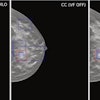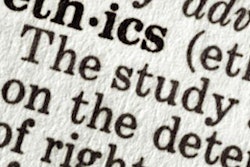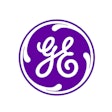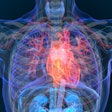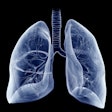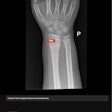
Interest in artificial intelligence (AI) showed no sign of waning for the duration of the Journées Francophones de Radiologie Diagnostique et Interventionnelle (JFR), and the congress proved the perfect stage for announcing the latest AI project: a nonprofit association aimed at improving availability of the technology in France.
The papers for the new association, DRIM France IA, were signed on Thursday, 4 October, ahead of the official launch at JFR 2018, which wrapped up on 15 October. It represents a quid pro quo collaboration between French radiology and other institutes, and industry. The organizers hope that many hospitals will make their data available to the companies investing in developing AI tools that will be made freely available to France's hospitals and radiologists.
Speaking about it at JFR 2018 on Saturday afternoon, Dr. Jean-Philippe Masson, president of the national union of independent radiologists (Fédération Nationale des Médecins Radiologues, FNMR) outlined the key goals of the new association in the session AI at the heart of patient care.
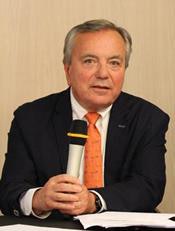 France's AI investment requires a new economic model, according to Dr. Jean-Philippe Masson.
France's AI investment requires a new economic model, according to Dr. Jean-Philippe Masson."The French radiologists' national health system can no longer invest in expensive tools so we needed a new economic model to develop -- and get access -- to these tools," Masson told AuntMinnieEurope.com ahead of the meeting. "Therefore, the tools will be free for all hospitals and radiologists who provide the data that companies will access. Once the products are developed, the companies will be able to sell them in other countries, but not in France."
Furthermore, while industry partners will be incorporated into the technical committee, they will not be involved in decision-making, according to Masson. There will also be an ethics committee to ensure the association remains nonprofit, and free from lobbying.
The board will begin its work directly after JFR, with the first stage of the database scheduled for development in January 2019. The precise nature of the AI tools to be created is not yet known.
"There is no three- or five-year plan. When the database is underway, we will be able to offer image and data files to companies for use in AI development," Masson noted.
There remain other finer details to clarify, such as whether the database will be categorized by organ or by device, whether it will be a standalone database, or encompass those of participating clinics and hospitals. The board will decide on the tools to be prioritized as and when needs arise. Many start-up companies are already interested, according to Masson.
It is not yet certain how many radiologists will be involved in the research, but the FNMR hopes the majority of France's 8,000 radiologists will be on board.
However, there could be a problem with public hospital involvement as some of these centers are already building, or attempting to build, their own tools with industry partners, according to Masson.
"Nonparticipating hospitals may be reluctant to share their data in a neutral space. However, when they are obliged to pay for the tools then they may change their minds," he said.
Today in France, AI is a work in progress that at present extends to computer-aided detection (CAD) with dedicated lung, breast, and heart applications, Masson told delegates. However, to take development further, numerous start-up companies are beginning to emerge within the larger AI ecosystem, alongside established industry giants and research laboratories.
France's radiology council (G4) is planning to use the AI association to help promote a more streamlined and efficient paperless requesting system, Masson told delegates.
The overall aim is to develop a larger network that links hospital RIS with general practitioners, private radiology centers, and private hospitals, as well, as integrating the national radiology society's guidance on pertinent requests (The SFR's Guide de Bon Usage, GBU).
This way, AI would validate pertinent requests using the GBU criteria, Masson noted. Furthermore, AI also would conduct automatic searches for antecedents by crossing the patient's unique identification number with data from taken from connected imaging services and other specialties.



